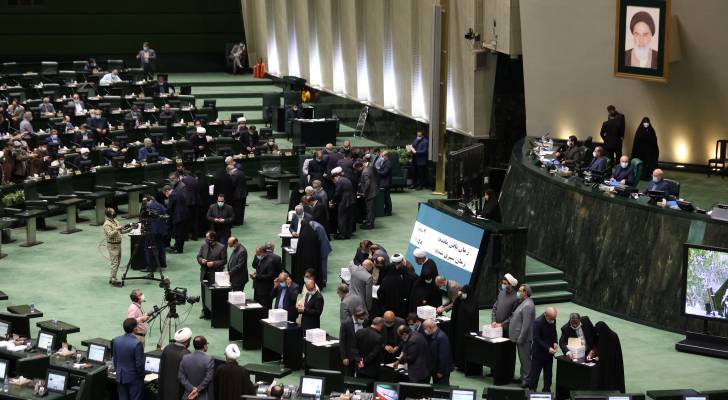Iran moves to suspend cooperation with UN nuclear watchdog
Iran’s parliament approved a bill on Wednesday to suspend cooperation with the International Atomic Energy Agency (IAEA), according to state-affiliated outlet Nournews.
The move comes in the wake of a recent air conflict with 'Israel', which Tehran accuses of attempting to thwart its nuclear program.
The proposed legislation, which still requires approval from Iran’s unelected Guardian Council, would make future IAEA inspections subject to authorization by the country’s Supreme National Security Council.
Parliament Speaker Mohammad Baqer Qalibaf, quoted by state media, said Iran would now accelerate its civilian nuclear program. He criticized the IAEA for what he described as its failure to condemn Israeli attacks on Iran’s nuclear infrastructure, saying the agency had compromised its credibility.
“For this reason,” Qalibaf said, “the Atomic Energy Organisation of Iran will suspend its cooperation with the Agency until the security of the nuclear facilities is guaranteed, and move at a faster pace with the country's peaceful nuclear programme.”
Tehran continues to deny seeking nuclear weapons, arguing that a recent IAEA resolution accusing Iran of violating non-proliferation commitments gave Israel a pretext to strike.
The bill’s outline, passed earlier this week by the parliament’s national security committee, includes suspending the installation of surveillance cameras, halting inspections, and discontinuing reporting to the IAEA.
The IAEA has not yet commented on the Iranian move. However, IAEA Director General Rafael Grossi said Wednesday he is working to restore access to Iranian nuclear sites, including facilities where uranium enrichment was underway prior to Israeli strikes launched on June 13.
The extent of the damage caused by 'Israeli' attacks, along with US bombings of underground Iranian nuclear facilities, remains unclear.
Iranian Foreign Minister Abbas Araqchi said in an interview with an arab news outlet that the country’s stance on its nuclear program and the broader non-proliferation regime “will witness changes,” though it is too early to predict the direction those changes will take.




